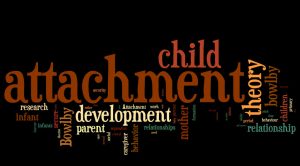“The human psyche , like human bones, is strongly inclined towards self-healing.” John Bowlby
Because we are social animals our relationships represent an essential resource for our survival. However, something important to remember, is that despite born needing to develop and maintain relationships in the interests of our survival, we are not born knowing how to do so. Relationships represent quite literally a form of communication, or a language, and are therefore not unlike any other language in that we must learn how to speak and use it effectively to communicate within the social world. Problems and issues with relationships represents an incredibly common reason why many people seek therapy, and in my professional opinion I believe that every client’s current struggles are either directly or indirectly linked to relational difficulties, whether it’s relating to themselves, the world and/or the people within it.
The eminent psychiatrist John Bowlby (1907-1990), believed that human beings along with all other mammal species are predisposed to relational behaviours that satisfied an internal need for security. In other words, we are born with an innate internal ‘attachment system’ that propels us to try and stay close to our parents and/or carers (or attachment figures), to ensure our safety, security and survival. As babies from the moment we are born, our brains are developing a neurological map or pattern of how to relate to our environment, which will ultimately inform our ability to relate to ourselves, others and the world in general. Therefore, the initial ‘attachment bonds’ that we form with our adult parents/carers as babies and throughout childhood, are of tremendous importance, because they represent the initial ‘template’ for how we develop and maintain relationships with ourselves and others throughout the lifespan. This template then acts as a type of map to direct us in navigating our relationships, and may guide us in performing key relational tasks, such as expressing our own emotional needs, and responding to the needs of others.
The verbal and non-verbal signals we receive as children via our parents/carers interactions with us, and their ability to ‘tune in’ and respond to our needs effectively and appropriately is paramount in our learning how to communicate and interact.
The subtle and not so subtle messages we receive both verbally and non-verbally from the adults we rely on to meet our physical and emotional needs may be internalised as a part of this process, informing core beliefs about ourselves, the world and the people in it that subsequently influence our view of and sense of being in the world. Therefore, we effectively develop our sense of identity and self-worth as a part of this complex relational activity and interaction.
If for example we had consistent experiences of our needs or expressions of distress being ignored and/or dismissed as children whenever we expressed them, the core belief that we develop and internalize could be something like “I don’t matter”, or “I am not important”. Other examples may include children of parents who may have a tendency to put their own needs before those of their child’s most if not all of the time. The child may consequently develop internal beliefs such as “other people’s needs are more important than my own”, which significantly affects self-esteem and self-worth, and may lead to difficulties asserting themselves in relationships, or feeling safe enough to express their own needs. The problem with such core beliefs are that they effectively become ‘rules for living’, that can then influence the roles we adopt in our relationships. Our earliest ‘template relationships’, teach us what role we are expected to play in relationships, and we can often then go on through life replicating those learned relationship dynamics or ‘relational dramas’ over and over, as we subconsciously recreate them in an attempt to readdress those early painful feelings of anger, frustration and/or hurt that we may have long been buried.
This piece represents a very concise and limited overview of merely ‘some’ aspects of attachment theory, and its significance for how we function in our relationships. It is an extremely expansive and complex theoretical framework that has a broad range of applications for psychotherapy, and those clients struggling with relationship issues. Therapy itself involves developing a relationship with your therapist, and so there is arguably no better way to explore and examine relationship problems than by developing a trusting relationship with our therapist, within which we may then proceed do so safely and securely.
